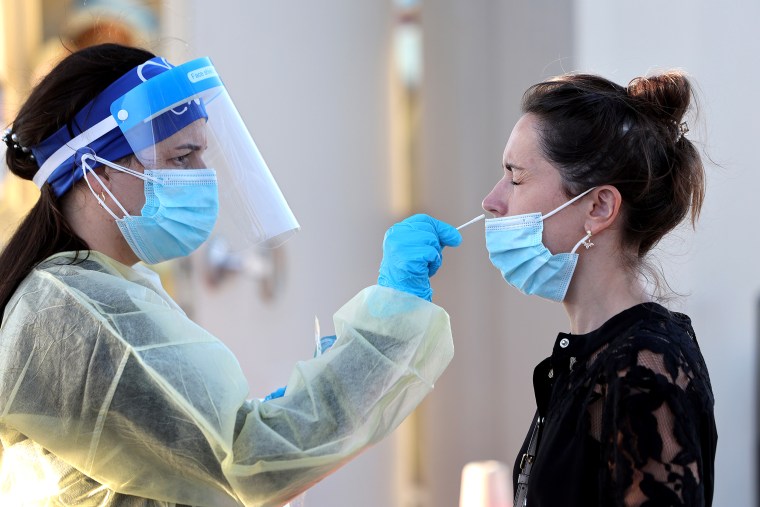The Centers for Disease Control and Prevention launched a new center on Tuesday that aims to model and predict the path of infectious diseases like Covid, then relay that information to the public along with federal, state, and local governments.
Called the Center for Forecasting and Outbreak Analytics, the subdivision of the CDC started its work in late 2021, analyzing data to anticipate the omicron variant's impact in the U.S. But the center's official launch came during a White House summit on improving the country's warning system for health threats.
Officials likened the center to a kind of National Weather Service for infectious diseases. In the same way that the weather service warns people about approaching hurricanes, they said, the CFA could give people advanced notice about outbreaks.
"How do we actually know that we need to start using and developing vaccines? How do we know that we need to deploy different antivirals? How do we know that we need to change our personal behavior when going out to dinner or to a movie? This kind of information that we’re trying to develop in the forecast would be very much similar to that," Dr. Dylan George, the CFA’s director for operations, said in a press call.
During the first omicron wave, George added, the CFA gave government leaders "several weeks of advanced notice of the timing of the surge." That influenced policies on boosters, travel restrictions, and Covid testing in schools.
The CDC already forecasts and analyzes data about infectious diseases, but the agency's information can be incomplete.
"Right now, CDC does not have the ability or the authority to direct public health data collection," Dr. Caitlin Rivers, CFA’s associate director, said. That limitation, she added, "can be quite a pinch point."
Dr. Ashish Jha, the White House Covid response coordinator, said on Tuesday that the new center could help officials better address the next pandemic threat.
"The response from our public health leadership has been to scramble, pull together evidence, try to make the best decisions we can. And I would argue we’ve done a pretty good job. But it’s also been really clear this is no way to run a response to a pandemic," he said.
Data from the CFA, Jha added, "puts us in a much more durable and much more effective setting to manage these kinds of crises."
The center received $200 million in funding from the American Rescue Plan, and it has already awarded $21 million to academic institutions and $5 million to federal partners to advance modeling and forecasting efforts, George said.
"One of our aspirations in the future is to work with colleagues to set up systems that that will allow us to estimate how many people are infected at a given time, irrespective of their decision to test," Dr. Marc Lipsitch, CFA's director for science, said on the press call.
But it will likely take time for the center's output to grow.
"Back in the 50s and 60s, it was really challenging to do numerical weather forecasting. Today, we're fairly good at it. But it took a concerted effort across the federal government to actually make that happen," George said. "We need to be able to put in the same sort of consistent and sustained funding and effort as we go forward."

